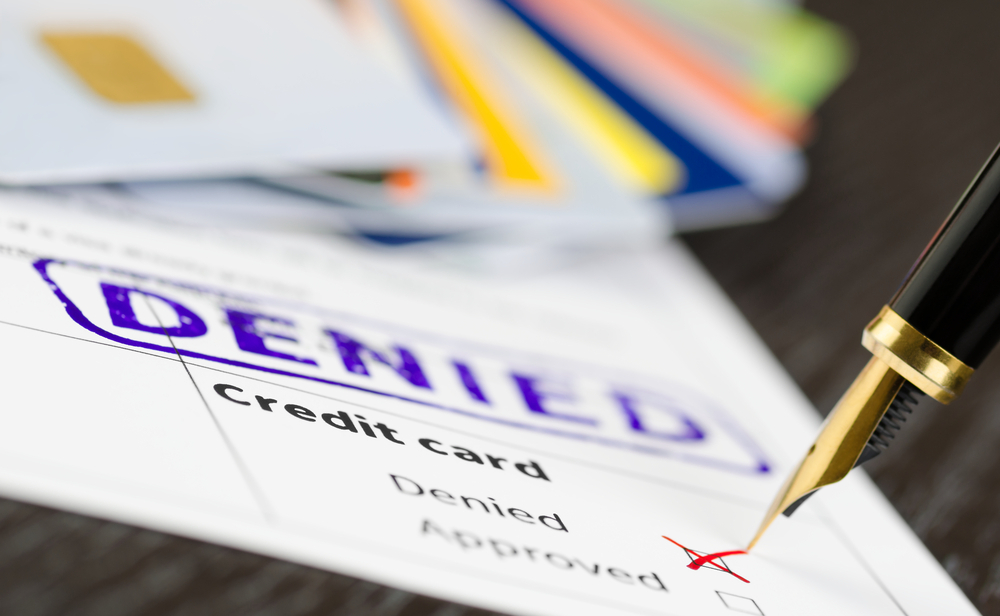Does Credit Card Application Rejection Affect Credit Score?
Credit card application rejection can be exasperating, especially if you’re concerned about it affecting your credit score. According to FICO ®, the credit score is lowered due to a hard inquiry when applying; however, a credit card application rejection does not directly hurt the credit score.
As per the Consumer Financial Protection Bureau (CFPB), credit scoring companies only assess how recently and frequently an individual applies for credit. They wouldn’t take into consideration if the application was approved or rejected.
Denials, credit card application rejection, and needless hard inquiries on your credit report can be avoided if we comprehend why a credit card request may be refused.
Read further to learn more about credit card application rejection and how to increase the chances of approval.
Table of Contents
Why Does Credit Card Application Rejection Affect Credit Score?
Issuers and lenders have their own credit policies and requirements when approving or rejecting a credit card applicant. Multiple factors such as an applicant’s credit score are considered in the process.
Importance of Credit Score
The higher your credit score is, the better the chances of your credit card application being approved, as it indicates that you’re a good credit risk and have managed debts well in the past.
A positive credit history reflects that you are likely to pay back the amount borrowed and have excellent management skills and responsible utilization of credit.
Your credit score and not-so-stellar credit history could be why your credit card application may be rejected. Erroneous or negative entries in your credit report can pull your score lower and include the following:
- Charge-offs
- Delayed or missed payments
- Foreclosure
- Bankruptcy
- A lot of hard inquiries
- The increased credit utilization ratio
- Poor credit history
Bear in mind that issuers may also review other additional factors such as gross income, debt-to-income ratio, and employment status.
The Equal Credit Opportunity Act (ECOA)
Every applicant possesses the right to know why their credit card application is rejected. The Equal Credit Opportunity Act (ECOA) protects customers from credit discrimination on the grounds of nationality, sex, religion, age, marital status, race, and color, among other things.
Because of this act, consumers can take action against lenders if they suspect that the issuer has been discriminatory.
How to Improve Your Chances of Approval
Seeing whether your application has been pre-approved or if it pre-qualifies helps you with comparing creditor options and finding out whether you have been approved to be issued a credit card before even applying for it. Unnecessary hard inquiries on your credit report can be avoided this way.
Capital One allows you to check whether you have been pre-approved for some of their credit cards before applying the Capital One pre-approval tool. This process is a quick and simple one that only requires basic details. It also doesn’t hurt your credit score, as the check is considered a soft inquiry.
Following are the measures you can take to help improve your credit before applying for a card if there’s a need:
- Regularly monitor your credit. Your credit report and activities on your account should be frequently checked and kept a tab on. It is wise to get a free copy of your report from each of the credit bureaus or AnnualCreditReport.com to keep an eye out for fraud. The major credit bureaus give one free copy each year; however, you can request frequent copies of your report if your card has been stolen. A few credit professionals advise ordering a copy of your report once every four months. You can also get insight into potentially fraudulent activity by doing weekly or monthly credit checks through your credit card company’s website.
- Make timely payment of bills. Your payment record and debt amount make up 35% and 30% of the overall credit score. Hence timely payment of debts is essential as a single delayed payment can drastically pull your score down.
Automated payments can be set up using various tools and software to avoid late payments. Lenders may charge you a late fee or high-interest rates in case of being just a day late from the due date of the payment.
- Stay below your credit limits and keep a balanced credit ratio. The credit utilization ratio is your total credit account balance divided by the usage of the available credit limit. As per your credit report, the more available credit you use, your credit score will worsen.
Credit bureaus would ideally want you to use a minimum amount of your available credit each month. It is advised to maintain a utilization rate of less than 30% or below to help increase your credit score. The ideal credit utilization ratio is recorded at 10% or under.
Bear in mind that the credit utilization rate adds up to 30% of your FICO score. Aim to pay the full credit card balances each month. A big chunk of money in interest is saved this way and protects your credit scores.
- Aim to pay your balances in full each month. Aim to pay the full credit card balances each month. A big chunk of money in interest is saved this way and protects your personal and business credit scores. Your credit score will remain undisturbed if you close an account with a $0 balance on your credit report. A high utilization ratio can harm your business credit score. Therefore, it is advised to maintain the utilization rate at 30% or below.
The CFPB states that paying off credit balances every month helps you in getting a good credit score. “You don’t need to revolve on credit cards to get a good score.
- Only apply for the credit that is needed. It is advised by the CFPB to only apply for the credit that is needed, as applying for multiple lines of credit in a short span of time indicates to lenders that your financial standing is not good.
- Become an approved and authorized user. You can be added as an approved user on any of your family members’ or friends’ credit card accounts to benefit from their activity if you don’t have any line of credit in your name. Any negative entries on their credit report will also impact your credit history, so ensure that you don’t become an authorized user for an account whose owner doesn’t make on-time payments and maxes out their limit.
- Contemplate using a secured credit card. You may not qualify for a traditional credit card if you’re building up or rebuilding your credit. However, a secured credit card is a solid option for those looking to build their credit.
Takeaway: Check Out Options Before Applying for a Credit Card
Bear in mind that building credit takes time. Immediately reapplying for new lines of credit may not be a good idea as inquiries could pull your score down. It is suggested to improve your credit before submitting another application.
It should be noted that a credit card application rejection can happen due to several reasons, and a refusal does not directly impact your credit score. Dismissals and uncalled-for hard inquiries can be avoided by checking whether your credit application has pre-qualified or has been pre-approved before submitting it.






